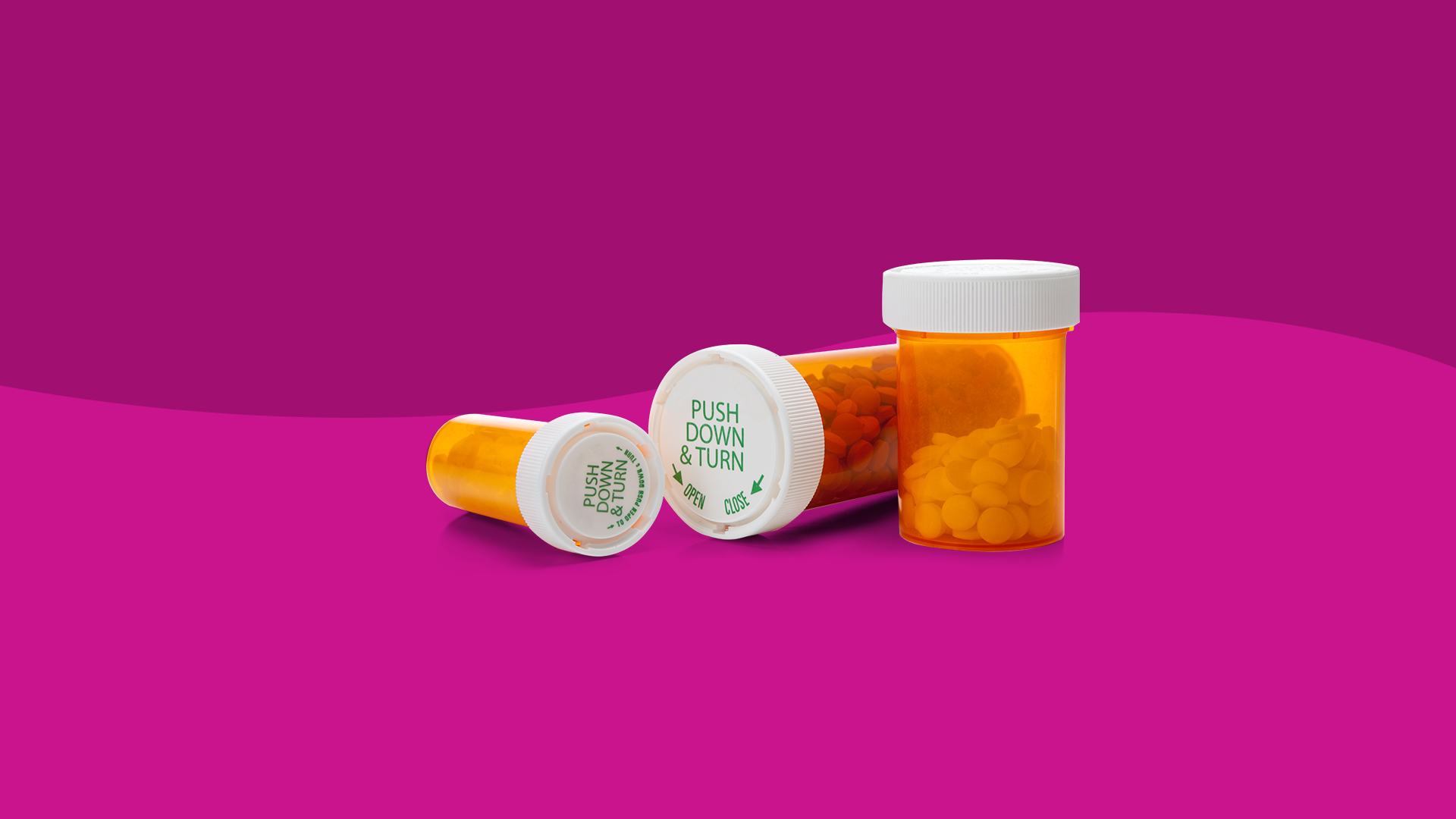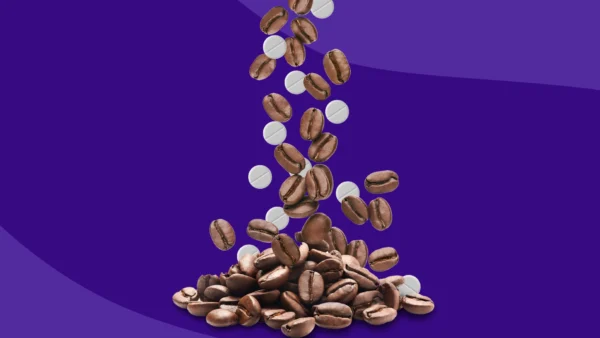Compare Trintellix alternatives | Selective serotonin reuptake inhibitors | Serotonin norepinephrine reuptake inhibitors | Atypical antidepressants | Tricyclic antidepressants | Monoamine oxidase inhibitors | Natural alternatives | How to switch meds
Trintellix (vortioxetine) is a prescription drug used to treat major depressive disorder in adults. It is a brand-name medication that works as an antidepressant. Specifically, Trintellix increases levels of serotonin in the brain. However, unlike other antidepressants, Trintellix also acts directly on serotonin receptors. As a result, Trintellix is considered an atypical or miscellaneous antidepressant, although it may also be classified as a selective serotonin reuptake inhibitor (SSRI) or serotonin modulator.
Depression is different for everyone. Along the same lines, medications and treatments don’t work the same for everyone with depression. For some people, Trintellix doesn’t work to relieve depression symptoms; granted, it can take up to four weeks for Trintellix to start providing maximum benefits. Still, others might experience unpleasant side effects from Trintellix, such as eye problems or sexual dysfunction, that don’t go away.
Whatever the case may be, you may be a candidate for a Trintellix alternative. Continue reading to learn more about Trintellix alternatives, how they work, and how to safely switch between treatments with guidance from your healthcare provider.
Related: What is Trintillex? | Trintillex dosages
What can I take in place of Trintellix?
You should not stop taking Trintellix abruptly as there may be an increased risk of withdrawal symptoms. Instead, you should work with your healthcare provider to gradually stop taking Trintellix and start taking an alternative.
There are several prescription drug treatments available to treat depression besides Trintellix. Alternative drugs that can be taken instead include selective serotonin reuptake inhibitors (SSRIs), serotonin norepinephrine reuptake inhibitors (SNRIs), and tricyclic antidepressants (TCAs), among others. Certain people may prefer an alternative to Trintellix due to side effects, different uses, and even cost.
Compare Trintellix alternatives |
|||
|---|---|---|---|
| Drug name | Uses | Dosage | Coupons |
| Trintellix (vortioxetine) | Major depressive disorder | 5 to 20 mg per day as tolerated, depending on response to treatment | Trintellix coupons |
| Prozac (fluoxetine) | Major depressive disorder Obsessive compulsive disorder Bulimia nervosa Panic disorder |
10 to 60 mg per day, depending on the age of the individual and the condition being treated | Prozac coupons |
| Zoloft (sertraline) | Major depressive disorder Obsessive compulsive disorder Panic disorder Post-traumatic stress disorder Social anxiety disorder Premenstrual dysphoric disorder |
25 to 200 mg per day, depending on the condition being treated and the response to treatment | Zoloft coupons |
| Effexor XR (venlafaxine) | Major depressive disorder Generalized anxiety disorder Social anxiety disorder Panic disorder |
37.5 mg to 225 mg per day, depending on the condition being treated and the response to treatment | Effexor XR coupons |
| Wellbutrin XL, Wellbutrin SR (bupropion) | Major depressive disorder Seasonal affective disorder (Wellbutrin XL only) |
150 to 300 mg per day, depending on the response to treatment | Wellbutrin XL coupons Wellbutrin SR coupons |
| Viibryd (vilazodone) | Major depressive disorder | 20 to 40 mg, depending on the response to treatment | Viibryd coupons |
| Remeron (mirtazapine) | Major depressive disorder | 15 to 45 mg per day, depending on the response to treatment | Remeron coupons |
Other alternatives to Trintellix
- Lexapro (escitalopram)
- Celexa (citalopram)
- Paxil (paroxetine)
- Pristiq (desvenlafaxine)
- Cymbalta (duloxetine)
- Pamelor (nortriptyline)
- Norpramin (desipramine)
- Tofranil (imipramine)
- Elavil (amitriptyline)
- Parnate (tranylcypromine)
- Nardil (phenelzine)
- Marplan (isocarboxazid)
- Desyrel (trazodone)
- Serzone (nefazodone)
Top 5 Trintellix alternatives
1. Selective serotonin reuptake inhibitors (SSRIs), such as Prozac (fluoxetine), Zoloft (sertraline), and Lexapro (escitalopram)
SSRIs are approved by the Food and Drug Administration (FDA) to treat major depressive disorder. Some SSRIs, such as Prozac (fluoxetine) and Zoloft (sertraline), can also treat obsessive-compulsive disorder (OCD) and panic disorder, among other mental health conditions. Other SSRIs, such as Lexapro (escitalopram), are often prescribed to treat anxiety in addition to depression. Common side effects of SSRIs include dry mouth, nausea, and insomnia. Sexual side effects and weight gain are also common with SSRIs.
2. Serotonin norepinephrine reuptake inhibitors (SNRIs), such as Effexor XR (venlafaxine), Pristiq (desvenlafaxine), and Cymbalta (duloxetine)
SNRIs are another alternative to Trintellix. These antidepressant medications are commonly available in brand-name and generic forms. They work differently from Trintellix in that they increase levels of both serotonin and norepinephrine in the brain. However, they are similarly effective to Trintellix. Possible side effects of SNRIs include nausea, dry mouth, and dizziness. These antidepressant medications can also cause sexual side effects, such as decreased libido.
3. Atypical antidepressants, such as Wellbutrin XL (bupropion), Viibryd (vilazodone), and Remeron (mirtazapine)
Atypical antidepressants are antidepressants that don’t fall under other antidepressant categories. They may work in different ways to balance levels of various neurotransmitters, including serotonin, norepinephrine, and dopamine, in the brain. Atypical antidepressants include medications with the least risk of causing sexual side effects.
4. Tricyclic antidepressants (TCAs), such as Elavil (amitriptyline), Norpramin (desipramine), and Pamelor (nortriptyline)
TCAs are one of the oldest classes of antidepressants. These antidepressants work to increase levels of norepinephrine and serotonin, but they can also affect other neurotransmitters, such as acetylcholine. While they are effective medications, TCAs generally cause more side effects and have more drug interactions than newer antidepressants, such as SSRIs. A healthcare provider may prescribe a TCA if treatment with another antidepressant doesn’t work.
5. Monoamine oxidase inhibitors (MAOIs), such as Nardil (phenelzine), Emsam (selegiline), and Parnate (tranylcypromine)
MAOIs are an older class of antidepressants like TCAs. They work by increasing the levels of neurotransmitters, including norepinephrine, serotonin, and dopamine. These antidepressants are effective, but they may cause more side effects and interact with more drugs than other antidepressants. Taking these antidepressants also requires certain dietary restrictions. A healthcare provider may prescribe an MAOI if treatment with another antidepressant doesn’t work.
Natural alternatives to Trintellix
Some people may benefit from natural remedies that have antidepressant effects. However, most healthcare providers will recommend a prescription antidepressant over a natural alternative to Trintellix. Natural remedies are not approved by the FDA for depression and other mental health conditions. It’s important to discuss these alternatives with a healthcare provider before trying them.
St. John’s wort
St. John’s wort is an herbal supplement that has been used as a traditional medicine for various ailments over the centuries. Studies suggest that St. John’s wort is more effective than placebo as a short-term option for mild to moderate depression. Not enough data is available to show that St. John’s wort may be effective when used for longer than 12 weeks. St. John’s wort also carries a risk of several side effects and drug interactions.
Omega-3 fatty acids
Omega-3 fatty acids are mainly produced from fish oil. Eicosapentaenoic acid (EPA) and docosahexaenoic acid (DHA) are omega-3 fatty acids that have been studied for their potential benefits for mental health conditions. Researchers believe that omega-3 fatty acids have anti-inflammatory effects that may help alleviate symptoms of depression. However, the studies involving omega-3 fatty acids vary in the dosage used. More studies are needed to determine the effects of omega-3 fatty acids on depression.
5-HTP
5-HTP supplements are produced from the seeds of a tree native to Africa called Griffonia simplicifolia. 5-HTP is a chemical that the body naturally makes from tryptophan, an amino acid. The body can then convert 5-HTP into serotonin. Studies suggest that 5-HTP supplementation can help boost serotonin levels, which may help relieve depression.
SAMe
S-Adenosyl-L-methionine, or SAMe, is a chemical naturally found in the body. A synthetic version of SAMe can be taken as a supplement. People with depression and other health conditions have been previously found to have abnormal levels of SAMe. Studies show that SAMe may help relieve depression. However, the research on SAMe for depression involves short-term studies. More research is needed to determine the exact effects of SAMe on depression and other medical conditions.
How to switch to a Trintellix alternative
When switching to a Trintellix alternative, it is not recommended to stop taking Trintellix abruptly due to the potential risk of withdrawal symptoms. The FDA label indicates that, if you’re taking Trintellix in doses lower than 15 mg per day, you could stop taking Trintellix abruptly. However, it’s important to seek medical advice from a prescribing healthcare provider before stopping Trintellix and switching to a Trintellix alternative.
In most cases, a healthcare provider will recommend tapering, or gradually decreasing the dose, before switching antidepressants. The process for switching antidepressants may include starting the new drug while tapering the old drug, immediately switching to the new drug after stopping the old drug, or tapering the old drug and then starting the new drug after a few days or weeks. A healthcare provider will not usually recommend taking more than one antidepressant at the same time due to the risk of serotonin syndrome.
Certain factors should be taken into account, including potential drug interactions and possible side effects of new drugs. Most antidepressants can cause serious complications, including serious bleeding. Caution should be used when taking certain drugs, such as nonsteroidal anti-inflammatory drugs (NSAIDs) and warfarin, with antidepressants due to the potential risk of bleeding.
The use of antidepressants can cause an increased risk of suicidal thoughts and behavior. Seek medical attention immediately if you or someone you know who is taking antidepressants is showing signs of worsened depression or suicidal thoughts.











